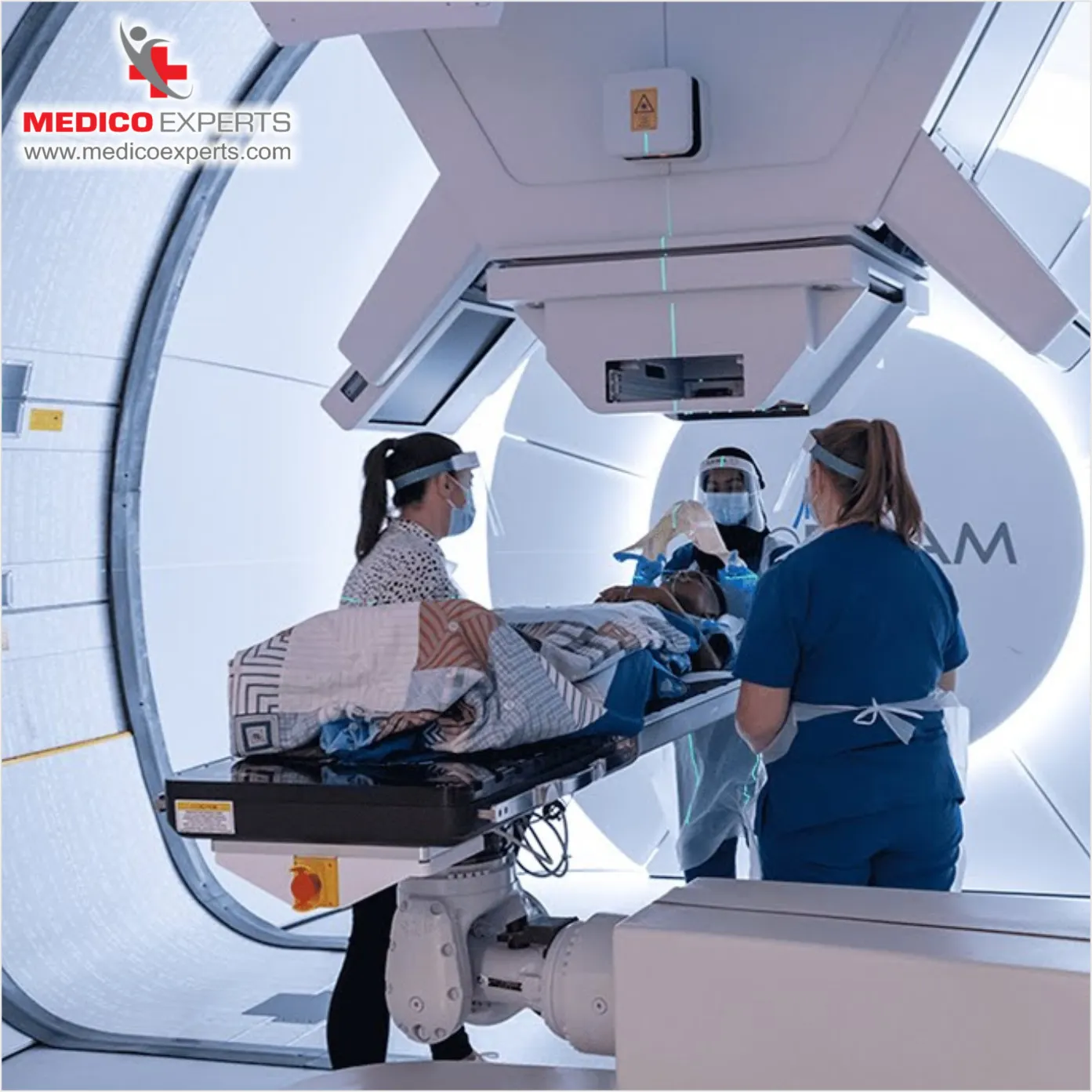Proton Therapy Success Rates: Who Benefits the Most & Why?
You have done your research, spoken to doctors, and now you are seriously considering proton therapy. But before making the final decision, one big question still bothers you: How successful is it?
That’s a valid concern, and you should learn thoroughly about proton therapy success rates. More so, choosing a treatment is not about what sounds promising. It’s about what actually works.
Proton therapy is lauded for its precision and its ability to bring down the side effects and complications. But what about the data backing the claims and what’s experts are saying?
Let us help you find that out to make the final decision.

Proton Therapy Success Rates
When we talk about cancer treatment survival rates, side effects, and the patient’s overall well-being, it matters a lot. Knowing the success rate of proton therapy will give you the confidence to go ahead without a doubt.
Proton therapy is a ground-breaking cancer treatment option that offers a high success rate and minimizes side effects and complications.
PT has shown exceptional long-term success in the case of many types of cancers.
- Studies show that patients treated with proton therapy show more than an 80% 5-year survival rate in the case of hepatocellular carcinoma, prostate cancer.
- A UK study showed the survival rate for 3 and 5 years was around 90%.
According to the National Cancer Institute, studies suggest that proton therapy may be a safer and more effective treatment than conventional radiation therapy. Researchers are working on finding more evidence for this.

Proton Therapy Success Rates for Prostate Cancer
Cancer treatment success rate is not only about survival. It includes minimizing side effects and ensuring maximum long-term well-being. Proton therapy is an advanced radiation that has shown some impressive results, mostly in reducing side effects and maintaining high survival rates.
The 4-year relapse-free survival rate of prostate cancer treated with proton therapy is 94.4%, 92.5%, and 93.8% for patients with low-risk, favorable intermediate risk, and unfavorable intermediate risk.
The 10-year survival rate is 85.6% for patients who underwent proton beam therapy for prostate cancer.
A study conducted on 1850 patients showed PBT has low side effects and long-term complications. Also, most patients didn’t have any serious bladder or bowel issues.
In the case of localized (cancer is confined to the original tissues and organ) prostate cancer, both proton beam therapy and conventional radiation therapy offer almost similar success rates in terms of survival rates and disease-specific survival. But what makes PBT a better option is its precision, which helps it spare the healthy tissues.
Because of this precision, proton beam therapy can deposit the radiation more accurately on the tumor site. Compared to conventional radiation, PBT spares the healthy tissues of the rectum and bladder.
Proton therapy also reduces the chances of secondary cancer compared to photon therapy.
Proton Therapy Success Rates for Breast Cancer
Proton therapy offers more targeted radiation in comparison to traditional radiation, which uses X-rays. In traditional radiation, the rays pass through the tumor and go beyond. But proton therapy’s radiation stops right at the tumor.
A study shows that people with breast cancer who are getting high doses of radiation to the heart will get better results with proton therapy than with traditional radiation. Conditions where high doses of radiation go to the heart include having a tumor on the left side, having a mastectomy, or having a tumor in the inner quarters of the heart.
A 2023 review suggests that proton therapy is more targeted and reduces the chances of damage to surrounding organs.
Another study indicated that proton therapy may lower the chances of developing secondary lung and second breast cancer as compared to traditional radiation.
A 2019 study showed that the patients who received proton therapy after mastectomy for non-metastatic breast cancer had a 3-year survival rate of 97.2%. Again, the results were almost the same as those of traditional radiation. However, proton therapy has benefits like decreased side effects and reduced chances of secondary cancers.
Proton Therapy Success Rates for Brain Cancer
Proton therapy is one of the safest and most effective ways to treat brain tumors. But the survival rate depends on tumor type, grade, location, and the patient’s age and overall health.
Two studies confirmed the safety and effectiveness of proton therapy for children with brain cancers. They found that the 5-year rate of survival was 84%. These children were above 4 years of age. The rate of recurrence-free survival was 70%.
Another study followed patients for about five years. It found a 7-year survival rate of 82.2%. Patients who had a complete tumor removal had better outcomes.
Proton Therapy Success Rates for Lung Cancer
Proton therapy’s precision targets lung tumors accurately, which is particularly beneficial for lung cancer treatment. The thoracic region is surrounded by critical organs like the heart and lungs, so precision is the most important aspect of any treatment.
Studies show that PT can be effective for certain lung cancer patients. Research indicates that for patients with early-stage non-small cell lung cancer, using proton therapy reduces radiation doses to critical structures and potentially improves outcomes while minimizing toxicity.
Another study showed that better survival rate for esophageal cancer. It decreases severe side effects and helps people live longer and healthier lives.
The survival rate of thoracic cancer depends on the stage of cancer. Stage I 5-year survival rate is 65%. In stage II the rate is 40%. In stage III, the rate is 15%, and in stage IV, the rate is 5%.
In general, sixty-five percent of people who have stage I lung cancer will survive the cancer for 5 years.
Proton therapy showed better results for stage III non-small-cell lung cancer. It helped manage short-term side effects, and the treatment outcomes were satisfactory.
Proton Therapy vs. Traditional Radiation Success Rate
Proton therapy has many advantages over traditional radiation therapy.
Proton therapy is well-known for its precision and safeguarding of the healthy tissues surrounding the cancerous cells. However, traditional radiation impacts healthy cells.
Some experts believe it is safer and more effective than traditional radiation. Its targeted precision and ability to minimize side effects make it a better option for cancer treatment.

Takeaway
Proton therapy has shown some exceptional results in treating cancer. Its precision, ability to reduce side effects, and boost survival rate make it a viable cancer treatment option.
If you are considering prostate, lung, brain, or breast cancer, understanding how successful its treatment outcomes are gives you a clear picture to move forward.
MedicoExperts can be your partner in your cancer treatment. We connect you with top oncologists and provide you with the best treatment options in India.
We give you the freedom to take charge of your health.

Consult with our experts and find out whether proton therapy is the best option for you.
Frequently Asked Questions (FAQs):
Q1. Can proton therapy cure prostate cancer?
A. Some studies showed that proton therapy has a lower risk of prostate cancer returning and secondary cancer development.
Q2. What happens after proton therapy?
A. After proton therapy is done, most people can go home and continue with their normal activities. Your doctor may recommend some tests to learn whether the treatment has gone well or not.
Q3. Can prostate cancer be 100% curable?
A. Prostate cancer can be 100% treated with early diagnosis and treatment. Many people who got treated before cancer spread beyond their prostate have lived normal and cancer-free lives.
Q4. Who is not a candidate for prostate surgery?
A. The following factors can make a person unfit for prostate surgery:
- If the person is at an advanced age.
- If the person has undergone extensive abdominal surgery.
- If the person has Morbid obesity.
- If they have bleeding tendencies.
- If they have preexisting heart or lung diseases.
Q5. Do proton therapy success rates vary between cancer types?
A. Yes, proton therapy success rates differ by cancer type. They are especially high for localized brain tumors, head and neck cancers, and many pediatric cancers.
- https://academic.oup.com/jrr/article/62/4/682/6283711
- https://pmc.ncbi.nlm.nih.gov/articles/PMC7914293/
- https://www.sciencedirect.com/science/article/pii/S0936655523000481
- https://www.cancer.gov/news-events/cancer-currents-blog/2020/proton therapy-safety-versus-traditional-radiation
- https://pmc.ncbi.nlm.nih.gov/articles/PMC8489490/
- https://www.sciencedirect.com/science/article/pii/S1558767320301993
- https://pubmed.ncbi.nlm.nih.gov/33539968/
- https://pmc.ncbi.nlm.nih.gov/articles/PMC10563661/
- https://pmc.ncbi.nlm.nih.gov/articles/PMC9139629/
- https://pmc.ncbi.nlm.nih.gov/articles/PMC6339938/
- https://pmc.ncbi.nlm.nih.gov/articles/PMC10047123/
- https://pmc.ncbi.nlm.nih.gov/articles/PMC10868643/#:~:text=In%20summary%2C%20proton%20therapy%20delivers,relative%20benefits%20to%20some%20degree.
- https://www.thegreenjournal.com/article/S0167-8140(18)33507-2/abstract
- https://www.sciencedirect.com/science/article/abs/pii/S0360301621000870
- https://pmc.ncbi.nlm.nih.gov/articles/PMC10868643/#:~:text=In%20summary%2C%20proton%20therapy%20delivers,relative%20benefits%20to%20some%20degree.
- https://www.cancerresearchuk.org/about-cancer/lung-cancer/survival
- https://pmc.ncbi.nlm.nih.gov/articles/PMC4608411/
- https://pmc.ncbi.nlm.nih.gov/articles/PMC8239379/#:~:text=The%203%2Dyear%20progression%2Dfree,translated%20to%20improved%20clinical%20outcomes.
- https://www.hopkinsmedicine.org/health/treatment-tests-and-therapies/proton-therapy
- https://www.cancer.gov/news-events/cancer-currents-blog/2020/proton-therapy-safety-versus-traditional-radiation
Relevant Articles For You
Recommendations To Understand Different Treatments

Author Bio:
Dr. Yashashree Joshi – MBBS, MD (Philippines)
Dr. Yashashree Joshi, MD, is a globally-trained oncologist with a robust academic background and extensive experience in pioneering cancer treatments. Dedicated to patient-centered care, she continually integrates the latest advancements in oncology to provide her patients with innovative and personalized treatment plans.
Content Medically Reviewed By MedicoExperts Editorial & Clinically Review Board



